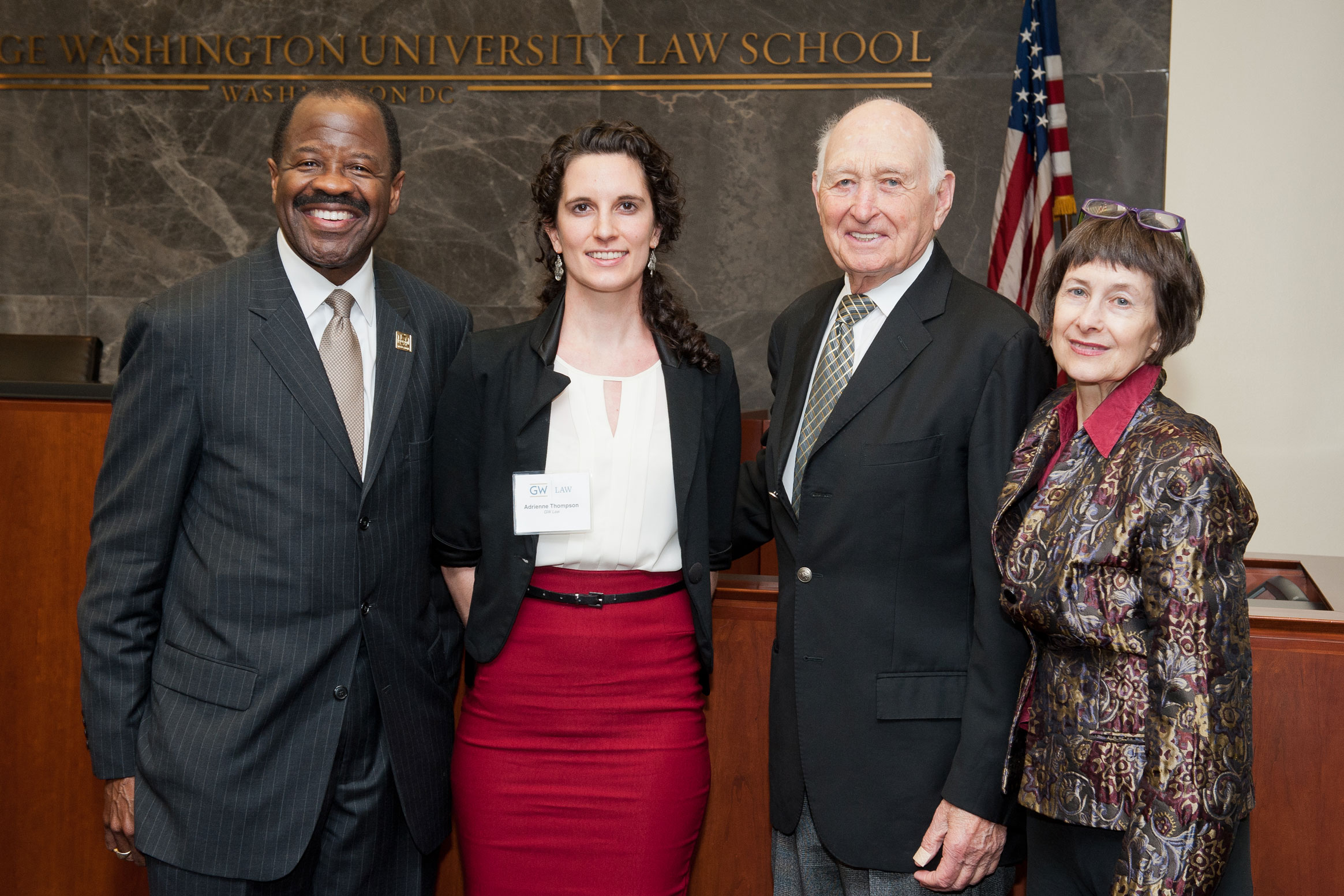This spring, GW Law presented current LLM student Adrienne Thompson with the 2016 Jamie Grodsky Prize for Environmental Law Scholarship. Awarded each year for the best paper written by a JD, LLM, or SJD student in the field of environmental law, the prize commemorates the innovative environmental research of Professor Jamie Grodsky, who passed away in 2010.
Ms. Thompson, who also serves as the Energy Law Scholar and Senior Research Associate for the Energy Law Program, originally submitted her paper as part of an Environmental Law Seminar she took in the spring of 2015. Titled “Predicting the Energy Future by Creating It," the paper describes a series of strategies that state public utility commissions should pursue to promote sustainable energy policies.
On the day of the ceremony, Dr. Gerold Grodsky and Andrea Huber, Jamie Grodsky's father and sister, helped present the award to Ms. Thompson. Dr. Grodsky funds the prize along with memorial gifts from generous donors.
"I remember attending the Grodsky prize ceremony for Jason Hull in the Spring of 2015 and being very impressed by Professor Glicksman's moving tribute to Jamie Grodsky and the legacy she left behind as an academic, friend, and daughter," Ms. Thompson said after being named the winner. "So, being the recipient of an award in Jamie's memory is not only a tremendous honor, but it also sets a high standard to strive for as I move forward in my own career."
About "Predicting the Energy Future by Creating It"
"Safe, abundant, and reliable electricity is the bedrock upon which the United States has built its modern economy. Our national security, commercial activity, and day-to-day living depend on the stability of the nation’s electric system – a system facing a set of challenges unmatched by any other in the grid’s century-long history. Stringent environmental regulations, climate change concerns, waves of older generator retirements, protracted natural gas market dominance, third-party competition, as well as increasing renewables and demand-side technology integration are just some of the realities coalescing into the perfect storm for electric utilities and regulators. Although intimidating, these challenges must be addressed. With their experience and duty to regulate in the public interest, state public utility commissions (PUCs) are well- positioned to help solve these problems and guide our transitioning electric system toward a low- carbon future.
To that end, this paper explores how PUCs can influence this evolution and promote sustainable energy goals, especially in the realm of generator selection. It begins by taking the reader through the changes taking place in the electric industry today, setting the stage for why state-level action is necessary, then briefly summarizes the development of the electric system as well as federal and state regulatory schemes. With that background information as context, the latter half of the paper sets out various options for state PUCs to pursue in advancing a sustainable energy agenda. The difficulties facing electric utilities and regulators today bring with them a host of uncertainties about how our electric system can cope in the near-term and thrive in the long-term. However, by embracing the opportunities inherent in this transition to a 21st century grid, state regulators can prepare for tomorrow’s energy future by helping to create it today."
—Adrienne Thompson


